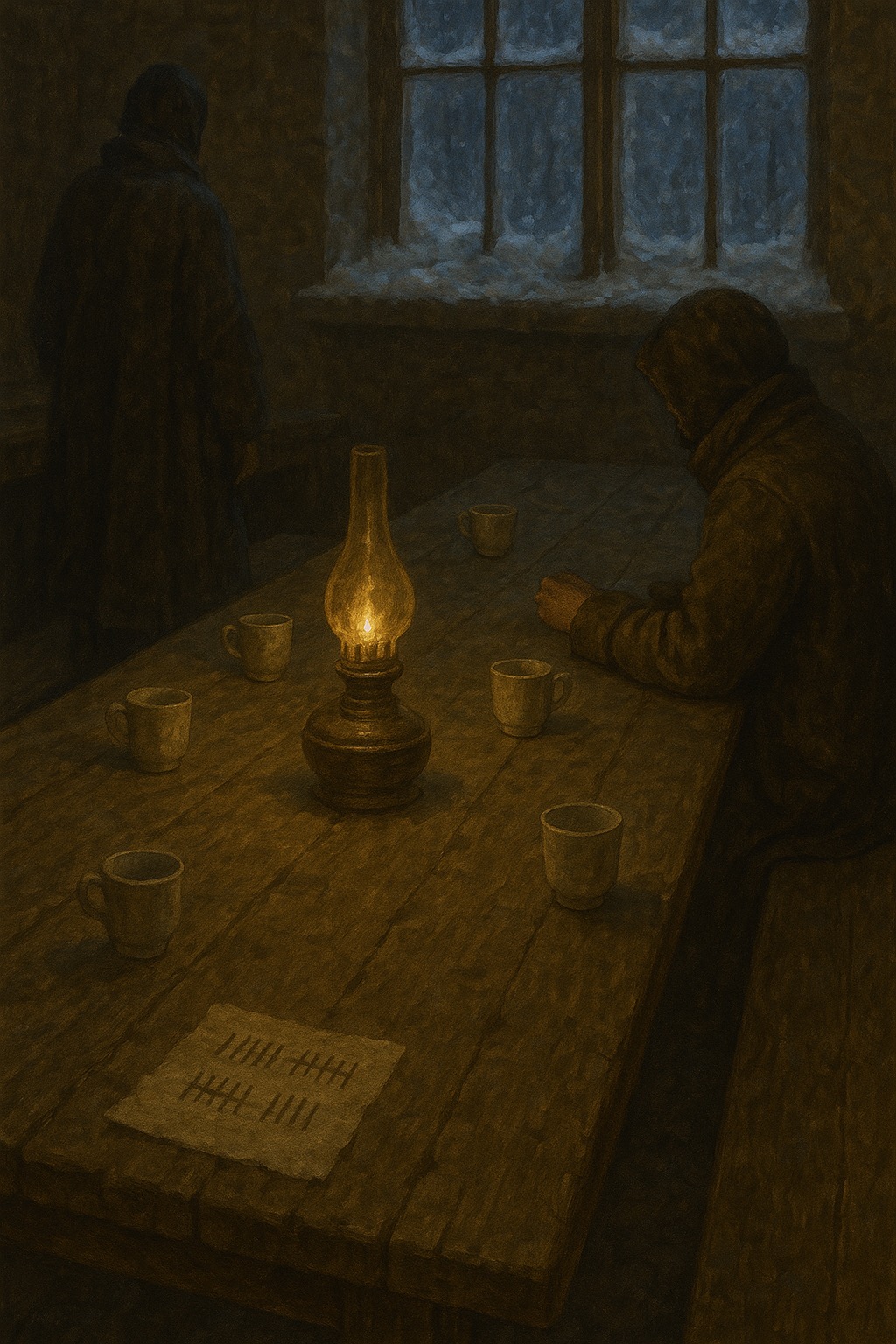9. Unary Comparison
Snow clung to the eaves of the student hall like frost-bitten lace, and the oil lamps flickered with every gust of wind that passed through the warped windows. Inside, coats were kept on and arguments ran hot—not of love or literature this time, but of grain.
„Lohusuu harvested more rye than Kambja, and everyone knows it“, Johann declared, his voice rising over the clatter of teacups. „But Kambja fed three schools!“ Liina snapped, cheeks flushed with something fiercer than cold.
Mihkel sat quietly at the edge of the room, notebook closed but ears open.
This was no longer idle bickering. It was a question of pride, of contribution—of which village gave more to the growing Estonian cause. Not in poetry or protest, but in loaves of bread. And yet no one could agree, because no one could count without bias.
Liina turned to him, impatient. „You believe in logic, Mihkel. Can you settle this?“
He hesitated. The Mill had been used to add, subtract, even mark letters like wounds in the page. But now—comparison. A decision, not a number.
Still, he nodded. „If you give me the tallies, I can give you the answer. Without pride. Without guesswork.“
Back in his quarters, he marked two rows of bars on a fresh tape:
|||||,||||||
It was no longer about finding the total, but about determining the relationship between them. Which came first? Which was larger? Could the Mill compare, not just compute?
As the gears turned, Mihkel thought not of numbers—but of fairness. Of truth as a tool for justice, not just puzzles.
On the input tape, you’ll get two positive numbers in the unary format separated by comma. Your task is to compare these two numbers and replace the comma with the appropriate comparison operator on the output tape.
For example, if the input tape is |||,||||, your output tape should be |||<|||| (3 < 4).
If the input tape is |||,|||, your output tape should be |||=||| (3 = 3).
